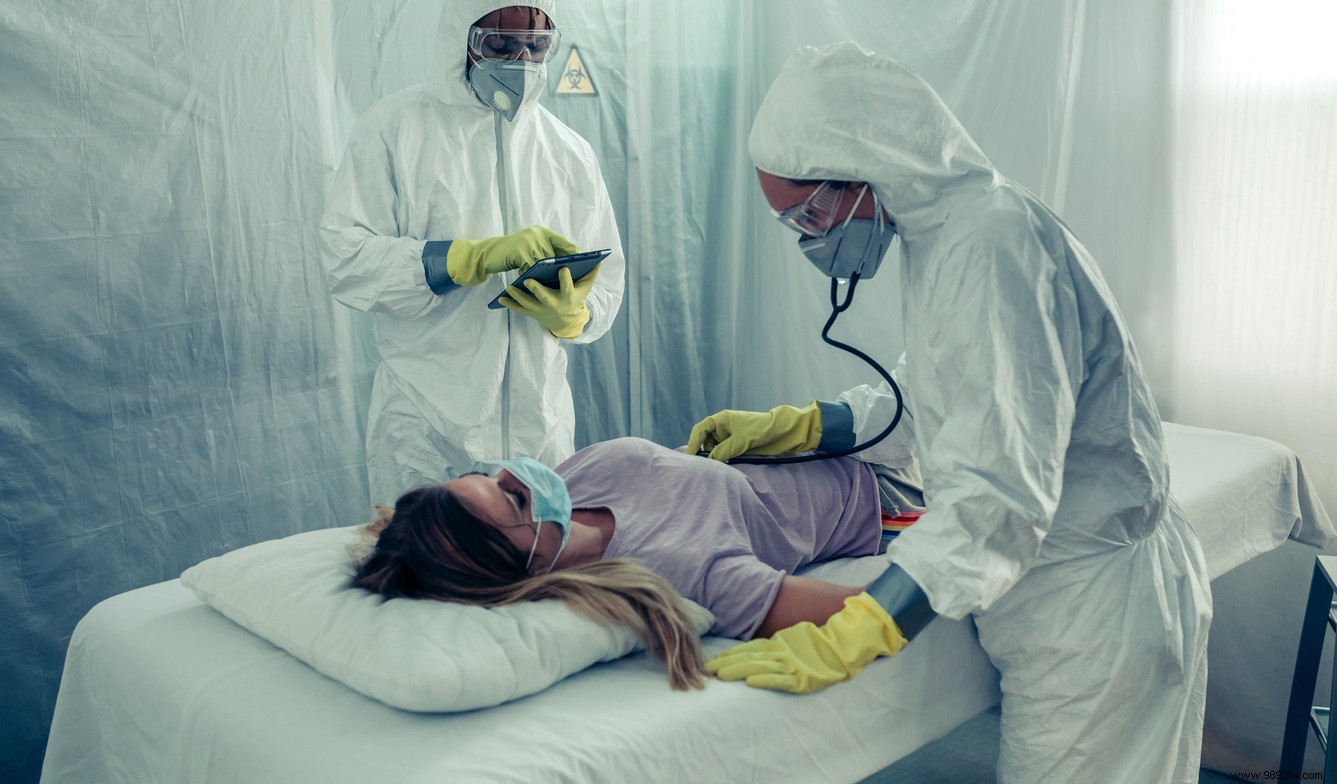Sometimes the immune system of some patients hard hit by Covid-19 goes out of order and goes into overdrive. However, this still misunderstood phenomenon which ultimately aggravates their state of health leaves doctors helpless.
For about 80% of patients, Covid-19 causes "moderate" symptoms (fever, feeling tired or dry cough). On the other hand, the remaining 20% have a severe form of the disease. They then develop pneumonia which is accompanied by respiratory failure . Stimulated by the presence of pathogens, our body then comes into play. Its objective:to flood our lungs with immune cells in order to limit the damage and repair the lung tissue.
Among these "little soldiers" are molecules called cytokines whose purpose is to organize the fight against the aggressor. Normally, this inflammatory process is carried out with precision, and the counterattack is limited only to the infected regions. But it can happen, faced with the particularly strong virulence of a virus, that the body gets carried away and starts to produce a lot more cytokines as necessary.
In this scenario, the deployed "soldiers" then destroy everything in their path, including healthy tissue. "Instead of aiming at a target with a rifle, it's like using a missile “, explains to National Geographic Angela Rasmussen, virologist and associate researcher at Columbia University Mailman School of Public Health. By overreacting, our immune system can thus aggravate the condition of the patients concerned .
This phenomenon, called "thunderstorm", "storm" or even cytokine "shock", has been observed in several patients severely affected by the new coronavirus. It was even the subject of a study published on March 16 in the medical journal The Lancet.
The importance of these "storms" in the deadly cycle of severe Covid-19 cases is not yet sufficiently known. But for Stanley Perlman, an immunology expert at the University of Iowa (USA), who has studied these phenomena in the cases of SARS and Mers, it is quite possible that this exuberant immune response “is what really kills patients .

In response to the phenomenon, the idea would be to be able to calm this "storm" in the lungs, without lowering the immune barriers of affected patients. In a sense, finding the right balance. There is currently no effective and proven therapeutic approach capable of doing this, but strategies are currently being urgently tested as the pandemic progresses.
In Paris, for example, the public hospital group AP-HP has been looking for several days at the effects of several molecules against these excessive inflammatory reactions as part of its Corimmuno trial.
Source